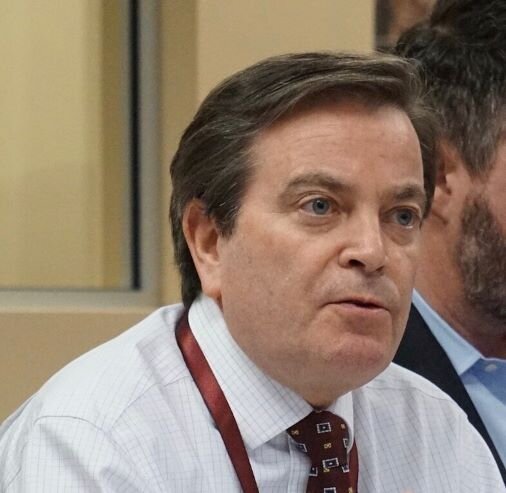Racism Compounds Stresses of COVID-19, Say RI DD Community Voices
/Iraida Williams
By Gina Macris
(This article was updated June 9 )
A Rhode Island man with developmental disabilities, stuck at home since the start of the COVID-19 pandemic, is anxious to get back to his regular activities but also is “afraid to take out the trash because he’s black,’’ his mother told a virtual crowd of about 170 people June 5.
Iraida Williams, the man’s mother, spoke during a Zoom forum co-sponsored by the state Executive Office of Health and Human Services (EOHHS) and the Rhode Island Parent Information Network to discuss the hopes and fears of those involved with the developmental disability services.
Marti Rosenberg
Marti Rosenberg, the moderator or the forum, replied that “just this morning, EOHHS has been grappling with these concerns.”
Rosenberg, director of Policy, Planning and Research at EOHHS, said the leadership wants to make sure that “EOHHS agencies are specifically having those difficult conversations.
“We need to make sure we have an absolutely specific answer for your son,” she told Williams.
Williams said, “I look forward to hearing back from somebody.”
Until now, quarterly community forums on developmental disabilities have been run by the Department of Behavioral Healthcare, Developmental Disabilities and Hospitals (BHDDH).
But in choosing Rosenberg to moderate Friday’s event, EOHHS signaled a desire to bring the particular concerns of those facing intellectual and developmental challenges to the highest levels of the executive branch of state government.
On June 9, a BHDDH spokesman offered additional context, saying that EOHHS has been helping its member agencies with planning throughout the COVID crisis. Rosenberg had facilitated a number of reopening planning conversations with providers and other community members in partnership with BHDDH and DCYF, and the June 5 Zoom meeting was another in that series.
The meeting was almost entirely given over to participants and their ideas for re-opening regular services. But echoes of ongoing protests against racism in Providence and across the nation were never far from the surface.
Kelly Donovan
Kelly Donovan, who receives state-funded services and is a vocal advocate for herself and her peers, said “people are either antsy to resume their lives or afraid of going out.” In the chat box that accompanied the audio and video of the Zoom meeting, she said she herself is “worried about getting sick and equally worried about the United States turning into a dictatorship.”
Ken Renault of the advocacy group RI FORCE said he had concerns about the neglect or abuse of people with disabilities because of the stresses of the last few months.
Rosenberg said group home residents of color and workers of color have been experiencing even more stresses because of the massive attention to police brutality that has been the focus of widespread protests organized on the heels of the pandemic lockdown.
The COVID_19 pandemic has highlighted the difference between the haves and the have-nots and, and it’s time to recognize the institutional racism in the dividing line between them, said Kevin Nerney, executive director of the Rhode Island Developmental Disabilities Council.
“Yes,” wrote Donovan in the chat box that accompanied the video. “Institutionalized racism is a problem. It is rampant!”
Separately, Nerney and the leaders of Disability Rights Rhode Island and the Sherlock Center on Disabilities at Rhode Island College released a statement decrying the death of George Floyd in police custody in Minneapolis May 25, calling it murder.
“The RI DD Network stands on the side of those who are protesting another needless death, who reject hate, and who demand justice. We are committed to effectuating full inclusion in society and working for the civil and human rights of Rhode Islanders with disabilities of all races, cultural backgrounds and ethnicities,” the statement said. It was issued by Morna Murray of DRRI and Amy Grattan of the Sherlock Center, in addition to Nerney.
Kevin Nerney
During the meeting, Nerney said people with resources have weathered the statewide lockdown with few problems, but the have-nots have struggled.
COVID-19 can be a “springboard for systems change going forward,” Nerney said.
Tina Spears, executive director of the Community Provider Network of Rhode Island, asked what day services might look like as the state re-opens.
“People won’t be able to congregate in the same ways they did before the pandemic hit,” Spears said. It will be “challenging for all of us. How can we administratively and financially do this?”
Thirty percent of daytime services occur in group activities in day centers, according to the independent federal court monitor overseeing the state’s efforts to integrate adults with developmental disabilities in their communities. The monitor, A. Anthony Antosh, has asked that center-based care be eliminated when daytime services resume on a broad scale.
That move would inherently increase costs for providing services because supporting people in the community individually or in small groups is more labor-intensive than overseeing them all in one facility.
(Some agencies are able to provide limited one-on-one or small group services in the community during the pandemic, depending on individual circomstances.)
Nerney said that in an improved system of services, the consumer “has to have full control of planning, evaluation and budget, with assistance from trusted people.”
And the system must move away from congregate care while still giving people a full array of supports, he said.
That last comment sparked push-back from some parents, who said there will always be a need for group homes.
Kevin Savage, the director of the Division of Developmental Disabilities, addressed the issue:
Kevin Savage
“If we say we need congregate care, we can’t imagine providing services another way, in-home or living independently,” he said.
“The ultimate goal is people making their own choices,” he said. While the state closed its institution for people with developmental disabilities more than 20 years ago, if people are living in group homes with others not of their own choice, the de-institutionalization is not complete, Savage said.
Since 1994, when the Ladd School closed, Rhode Island has supported relatively few housing options for adults with developmental disabilities. And housing is a primary concern, particularly for aging parents.
Savage did not address the cost of safe and supportive alternatives to group homes. For example, staffing an apartment with two or three residents 24 hours a day is inherently more costly than providing that coverage in a group home setting with four to eight residents.
Claire Rosenbaum, coordinator of adult supports at the Sherlock Center, said during the Zoom meeting that many people with intellectual or developmental disabilities may experience some depression as a result of the continuing isolation and may need mental health supports built into their services.
Other comments touched on a need to enable adults with developmental disabilities to have easy access to technology. Rory Carmody of AccessPoint RI and Casey Gartland of Perspectives explained how they used remote audio and video and other hi-tech capabilities to continue to place and support some clients in jobs during the pandemic and to conduct other activities.
John Susa, a parent and long-time advocate, said the Division of Developmental Disabilities has relaxed “a lot of unnecessary rules” during the pandemic. He said he would like the state to ”keep as many of those relaxations in place” as possible.
Carolyn Maxwell, who directs her daughter’s services, said she is particularly pleased about a rule change that allows her to receive compensation for the work she does with her daughter, Emily.
Maxwell, a teacher, said at the previous community forum in March that she was never able to return to the classroom after Emily was born 27 years ago. At the same time, she has had difficulty finding paid staff to work with her.
Maxwell has helped Emily start an online business called “Love Letters By Emily” that features handmade note cards and art photography incorporating American Sign Language, which Emily uses in daily life.
Speaking via Zoom last Friday, Maxwell said that being compensated as Emily’s caregiver has been a “huge help to us.” She wants the rule change to become permanent.
Savage, the state’s developmental disabilities director, said in mid-May that the relaxed rules on hiring legal guardians and other family members would remain in effect. Savage made the comment during a federal court hearing in mid-May on the way adults with developmental disabilities have fared during the pandemic, in conjunction with a 2014 consent decree that gives the court jurisdiction over state-funded daytime services.
Addressing procedures for re-opening developmental disability services, state officials said they anticipated guidelines for ending the lockdown at group homes to be issued later in the day on June 5. The guidelines were issued June 6. To read them, click here.
Service providers are expected to use the guidelines to develop a plan for re-opening group homes to family visits and other normal comings and goings, said Rosenbaum, the adult supports coordinator at the Sherlock Center. Plans must get approval from the BHDDH before they are implemented. (An earlier version of this article incorrectly said approval must come from the Department of Health.)
Rosenberg said the first set of guidelines will apply only to group homes. A separate second set of guidelines will be issued for day services, she said.
The resumption of day services would follow the same sequence, with the issuance of guidelines for providers to draft plans specific to their agencies.
Photos of themselves courtesy of Iraida Williams and Marti Rosenberg. All other photos by Anne Peters.




















